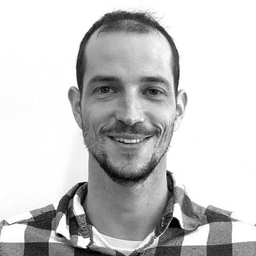
Ben Brubaker
Staff Writer at Quanta Magazine
Staff writer @QuantaMagazine covering computer science. Former freelance physics writer, ex-physicist. Same handle at bluesky and mastodon.
Articles
-
2 weeks ago |
buff.ly | Stephen Ornes |Eric James Beyer |Matt von Hippel |Ben Brubaker
Quantum computers still can’t do much. Almost every time researchers have found something the high-tech machines should one day excel at, a classical algorithm comes along that can do it just as well on a regular computer. One notable exception? Taking apart numbers. In 1994, the mathematician Peter Shor devised an algorithm that would let quantum computers factor big numbers exponentially faster than classical machines.
-
1 month ago |
quantamagazine.org | Ben Brubaker
One of the most important classes goes by the humble name “P.” Roughly speaking, it encompasses all problems that can be solved in a reasonable amount of time. An analogous complexity class for space is dubbed “PSPACE.”The relationship between these two classes is one of the central questions of complexity theory. Every problem in P is also in PSPACE, because fast algorithms just don’t have enough time to fill up much space in a computer’s memory.
-
1 month ago |
flipboard.com | Ben Brubaker
2 hours agoThe smart ring will also more accurately measure calories burned during exercise by factoring in your heart rate. Following the debut of the Oura Ring 4 last October, which featured improved accuracy for blood oxygen tracking and heart rate readings, the company has announced it’s introducing …
-
1 month ago |
estadao.com.br | Ben Brubaker
Normalmente, não se constrói uma máquina sem entender como ela funciona. Mas para os pesquisadores de inteligência artificial (IA) que criam grandes modelos de linguagem (LLMs), a compreensão é a única coisa que eles ainda não conseguiram. De fato, às vezes, o trabalho deles parece mais com jardinagem do que com engenharia. “Coloque uma semente de tomate no solo e você terá um tomateiro”, disse Martin Wattenberg, pesquisador de modelos de linguagem da Universidade de Harvard.
-
1 month ago |
technewstube.com | Ben Brubaker
Tech News Tube is a real time news feed of the latest technology news headlines.Follow all of the top tech sites in one place, on the web or your mobile device.
Try JournoFinder For Free
Search and contact over 1M+ journalist profiles, browse 100M+ articles, and unlock powerful PR tools.
Start Your 7-Day Free Trial →X (formerly Twitter)
- Followers
- 2K
- Tweets
- 1K
- DMs Open
- Yes

RT @SimonsInstitute: In this episode of Polylogues, @benbenbrubaker and @boazbaraktcs discuss Boaz’s path TCS, theory and practice in crypt…

Can neural networks learn languages that are impossible for humans? My latest story for @QuantaMagazine explores how making language models worse at learning might make them better tools for linguists: https://t.co/VjvJO9ZQ5A

My latest in @QuantaMagazine: why theoretical computer scientists like to pose questions to imaginary black boxes: https://t.co/meZInYAbUg
